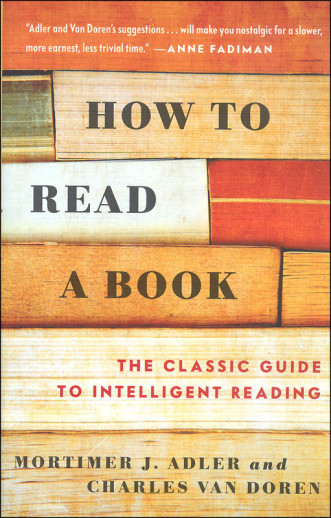We use cookies to make your experience better. To comply with the new e-Privacy directive, we need to ask for your consent to set the cookies. Learn more.
How to Read a Book
Why did nobody tell me about this book before now??? Even just the first few chapters lifted loads from my shoulders and helped me understand so much about my reading. Did you know that we read for three basic reasons? For entertainment, information and understanding. If reading for understanding is your goal, the author of this book will take you by the hand and open the world of books up for you. There are levels to reading which you will learn about: elementary (basic reading), inspectional (skimming systematically), analytical (best and most complete reading given an unlimited amount of time), and syntopical (comparative reading through many different sources). While focusing mainly on analytical reading, this book will encourage you to take your reading level beyond elementary, (which is where many people are stuck), and to progress on to the fantastic and ever so rewarding heights of the higher levels of reading. Then be taught techniques to reading different types of books including practical books, imaginative literature, plays, poetry, history, science, mathematics, philosophy and social sciences. Included in Appendix A is a list of recommended reading books. I would buy the whole book just for this list; it is that helpful! While moms and dads will also want to read this book, I think it will be particularly helpful for teens as well. Progressing through high school, studying for exams, getting my teeth into classics and learning about things which interest me would all have been enhanced had I read this book long ago! This 1940 classic by Mortimer Adler and Charles Van Doren is now brought to you in a revised, updated, and expanded version. Enjoy and be stretched! 426 pgs, pb. ~ Genevieve
| Product Format: | Softcover Book |
|---|---|
| Brand: | Simon & Schuster |
| Author: | Mortimer Adler |
| Grades: | 7-AD |
| ISBN: | 9780671212094 |
| Length in Inches: | 8.25 |
| Width in Inches: | 5.3125 |
| Height in Inches: | 1 |
| Weight in Pounds: | 0.8 |

